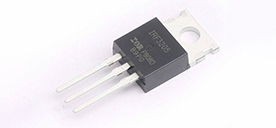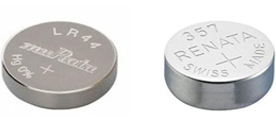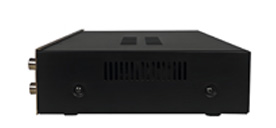Flexible cables: a cutting-edge exploration of merging design and function
2024/4/15 10:33:45
Views:
Flexible cables are highly flexible electrical conductor assemblies that are often used in applications that require frequent movement or use in small spaces. Compared with traditional cables, flexible cables are more suitable in scenarios with complex environments, limited layout, or frequent movement.
Definition and structure of flexible cables
Flexible cable is an electrical connection component composed of insulated wires, conductors, sheaths, etc. Its structure consists of a conductor (usually copper wire), insulation, an insulating outer sheath, and possibly a metallic braid. This design ensures that the wire is not easily damaged when bent, twisted or squeezed, thus maintaining the stability and safety of the electrical connection.
Advantages of flexible cables
Flexible cables have many advantages over traditional cables, making them popular in many applications.
1. Highly flexible: Flexible cables are designed to be flexible and can withstand large bends without damaging the wires or insulation. This high degree of flexibility makes flexible cables suitable for environments that require frequent movement or have restricted layouts, such as robotics, industrial equipment, and medical equipment.
2. Anti-torsion performance: The internal structure of the flexible cable is reasonably designed and has good anti-torsion performance, which can reduce the risk of damage caused by torsion while bending. This makes the use of flexible cables in complex environments more reliable.
3. Wear resistance and oxidation resistance: Flexible cables are usually made of high-quality materials and have strong wear resistance and oxidation resistance. No matter in harsh working environments or after long-term use, flexible cables can still maintain a stable electrical connection state and extend their service life.
4. Flexibility: The structural design of flexible cables makes them extremely flexible and can adapt to installation needs of various shapes and sizes. This flexibility makes installation of flexible cables in tight spaces or tortuous environments easier.
5. Reliability: Flexible cables undergo strict manufacturing processes and quality control, and their connection stability and signal transmission quality are guaranteed. In key application fields such as medical devices, aerospace, etc., the reliability of flexible cables is crucial.
6. Save space: Flexible cables are more flexible than rigid cables and can better adapt to the layout needs of small spaces. In situations where space is limited, flexible cables can effectively save space and improve the layout efficiency of the overall system.
Application areas of flexible cables
Flexible cables have a wide range of applications in many industries. In automated production, flexible cables are widely used in situations where frequent movement and bending are required, such as robots and automation equipment, ensuring the normal operation of the equipment. In the medical field, flexible cables are used for power transmission and signal transmission of various medical equipment, ensuring the accuracy and reliability of the equipment. In addition, aerospace, automobile manufacturing, shipbuilding and other fields also have indispensable demand for flexible cables.
Definition and structure of flexible cables
Flexible cable is an electrical connection component composed of insulated wires, conductors, sheaths, etc. Its structure consists of a conductor (usually copper wire), insulation, an insulating outer sheath, and possibly a metallic braid. This design ensures that the wire is not easily damaged when bent, twisted or squeezed, thus maintaining the stability and safety of the electrical connection.
Advantages of flexible cables
Flexible cables have many advantages over traditional cables, making them popular in many applications.
1. Highly flexible: Flexible cables are designed to be flexible and can withstand large bends without damaging the wires or insulation. This high degree of flexibility makes flexible cables suitable for environments that require frequent movement or have restricted layouts, such as robotics, industrial equipment, and medical equipment.
2. Anti-torsion performance: The internal structure of the flexible cable is reasonably designed and has good anti-torsion performance, which can reduce the risk of damage caused by torsion while bending. This makes the use of flexible cables in complex environments more reliable.
3. Wear resistance and oxidation resistance: Flexible cables are usually made of high-quality materials and have strong wear resistance and oxidation resistance. No matter in harsh working environments or after long-term use, flexible cables can still maintain a stable electrical connection state and extend their service life.
4. Flexibility: The structural design of flexible cables makes them extremely flexible and can adapt to installation needs of various shapes and sizes. This flexibility makes installation of flexible cables in tight spaces or tortuous environments easier.
5. Reliability: Flexible cables undergo strict manufacturing processes and quality control, and their connection stability and signal transmission quality are guaranteed. In key application fields such as medical devices, aerospace, etc., the reliability of flexible cables is crucial.
6. Save space: Flexible cables are more flexible than rigid cables and can better adapt to the layout needs of small spaces. In situations where space is limited, flexible cables can effectively save space and improve the layout efficiency of the overall system.
Application areas of flexible cables
Flexible cables have a wide range of applications in many industries. In automated production, flexible cables are widely used in situations where frequent movement and bending are required, such as robots and automation equipment, ensuring the normal operation of the equipment. In the medical field, flexible cables are used for power transmission and signal transmission of various medical equipment, ensuring the accuracy and reliability of the equipment. In addition, aerospace, automobile manufacturing, shipbuilding and other fields also have indispensable demand for flexible cables.
Related Information
-
-
Phone
+86 135 3401 3447 -
Whatsapp





